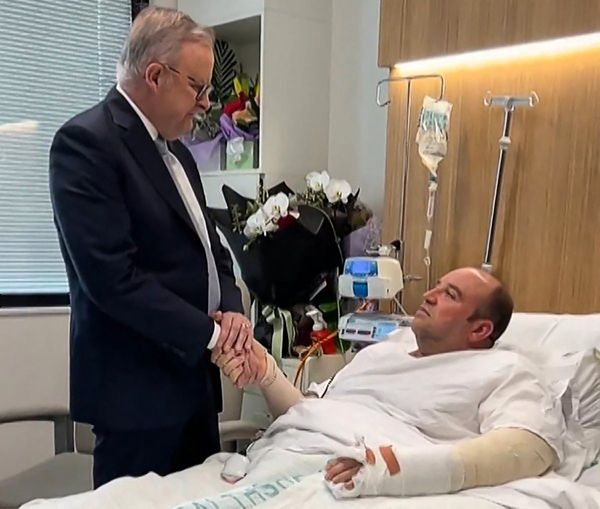
In the eyes of the world, there seem to be two kinds of violence against the Palestinian people. There are the genocidal horrors that have been unfolding in Gaza, in which Israel is erasing families, neighbourhoods and livelihoods. Then there is the other kind: the violence that Palestinians have been subjected to since the 1948 Nakba, overlooked and barely commented upon.
Violence in the West Bank always seems to be placed into the second category, no matter how extreme. Yet in recent weeks, we have seen a marked escalation from Israel. Politicians seem to have decided they have free rein while this latest war plays out and all eyes are on Gaza. But look at the West Bank and you will see the actions of an increasingly totalitarian regime that is detaining Palestinians without charge, torturing prisoners and limiting physical and economic freedom in order to consolidate settler dominance.
In the seven weeks from 7 October, Israeli forces and settlers killed 221 Palestinians in the West Bank, according to the UN Office for the Coordination of Humanitarian Affairs – more than the entirety of 2022. They include eight-year-old Adam al-Ghoul and Basel Abu al-Wafa, 15, from Jenin refugee camp. Another 2,955 people have been injured. Raids on Palestinian refugee camps, villages and towns have become even more frequent – and are now taking place in broad daylight, when they often used to be perpetrated under the cover of darkness. Drones and snipers are used to targetyoung people who throw stones, bystanders and anyone who challenges the military’s actions.
Medical teams in the West Bank have also been blocked from treating our injured. The World Health Organization has reported 229 attacks on “healthcare” between 7 October and 28 November, most of which took place during raids. These included obstructing ambulances, detaining and using force against healthcare personnel, and conducting militarised searches.
The sheer level of destruction shows that Israel’s aims during this war go well beyond a “second Nakba” in Gaza alone. The Balata refugee camp was targeted by an airstrike on 18 November, and Israeli armoured vehicles and bulldozers then raided its narrow streets, causing heavy damage to the already-ailing roads and essential infrastructure. This is a well-established Israeli tactic that seeks to destroy the fabric of everyday life. In Jenin camp earlier this year, Israel destroyed water pipes, cut off electricity, damaged roads and wrecked cars.
From previous experience, we know what comes next in these raids: extensive arrest campaigns. The Palestinian Authority’s commission for prisoner affairs reports that Israel has arrested nearly 3,300 Palestinians since 7 October, 80% of whom are subjected to administrative detention – renewable six-month sentences that are handed down without trial or charge. These arrests are brutal. Israeli soldiers beat Palestinian detainees and destroy their property. Israel has made various amendments to martial law to extend the period Palestinians can be detained without judicial review or even lawyer visits and amended its anti-terrorism law to criminalise the following of unacceptable social media accounts.
While systemic torture has long been documented in the Israeli prison system, things seem to have worsened. Israel has initiated a total crackdown on Palestinian prisoners, which includes cutting them off from the outside world, initially preventing testimonies from reaching us. But based on lawyer visits and accounts from recently freed prisoners, Amnesty International has warned of prisoners kept naked and blindfolded, and forced to keep their heads down or sing Israeli songs. Since 7 October, six Palestinian political prisoners have died in Israeli jails. This violence can only be seen as collective punishment of Palestinian prisoners.
Even as some Palestinian prisoners were released as part of a hostage deal between Hamas and Israel, Israel was arresting more: according to the Palestinian Prisoners Club, as 169 children and 71 women were released, 260 more Palestinians were arrested including a 12-year-old child.
Meanwhile, as crowds gathered to welcome freed prisoners, Israeli forces have been firing stun grenades, bullets and teargas. Yassin al-Asmar and Fadi Badran were killed, and dozens more injured. Israel is even litigating our emotions inside our homes, banning celebrations for the freed prisoners and raiding their houses ahead of their arrival, forcing visitors out, throwing out candy and threatening 70,000 shekels (£14,800) fines if families were found to celebrate their loved ones’ freedom.
The violence is economic, too. Israel has reduced the tax revenue available to the Palestinian Authority, and has revoked work permits for Palestinians who used to work in Israeli settlements. Many Palestinian farmers have been unable to harvest their olive trees due to Israeli settler and military violence, jeopardising the main source of income for between 80,000 and 100,000 Palestinian families. Movement restrictions between West Bank towns and villages persist, while settlers harass and attack cars on the main roads. Some places are completely closed, such as Huwara, which has become a ghost town, and whose residents require military approval to simply cross the main street.
When the violence in Gaza stops and Palestine again falls off the news cycle, this other violence – the daily, grinding violence, embedded in the state – will continue, and will probably escalate further. The world will do as it has done for decades, and return to knowingly overlooking Israel’s occupation and siege. This is why we Palestinians are increasingly refocusing our efforts to resist the root cause of this violence – settler colonialism – as the means to liberate us all.
Layth Hanbali is a health researcher working independently and at Birzeit University in Ramallah, Palestine
Do you have an opinion on the issues raised in this article? If you would like to submit a response of up to 300 words by email to be considered for publication in our letters section, please click here.







